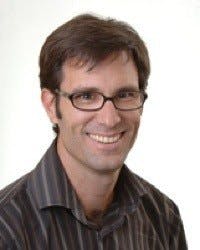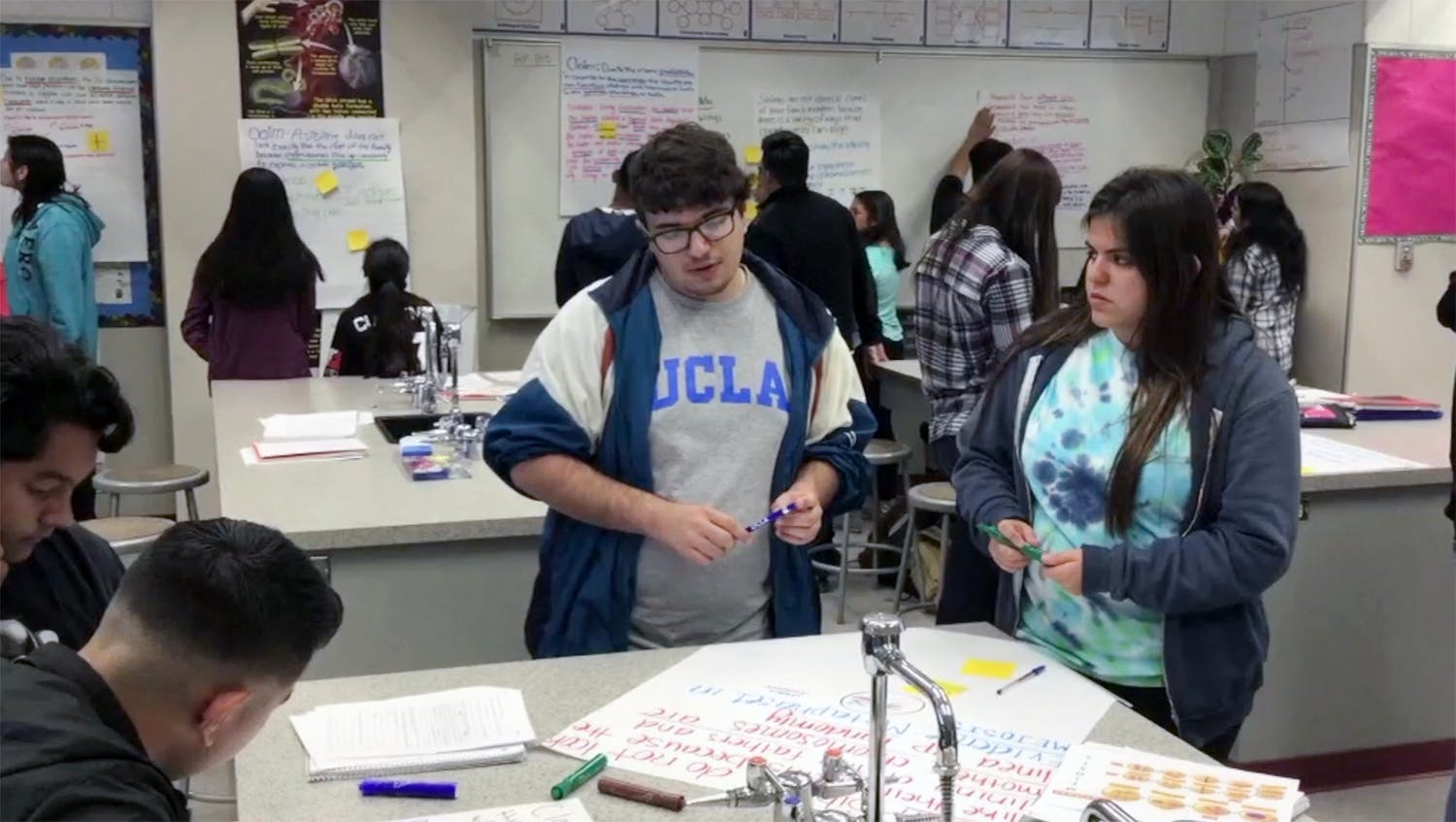Updated 5/15/17
UCLA Professor of Education William Sandoval has created a video about his research on the adaptation of Next Generation Science Standards by middle and high school teachers as one of more than150 federally funded projects to be showcased online on the STEM for All 2017 website, May 15-19. (To view, click here.)
Sandoval’s clip titled, “Supporting teachers to enact ambitious science teaching,” features his a three-year professional development project supporting secondary science teachers in Montebello Unified School District to facilitate argumentative learning for students. Sandoval’s project is funded by the National Science Foundation (Community for Advancing Discovery Research in Education, CADRE, DRL:1503511)

“Having kids argue about the science they’re doing, whether it’s how to do an experiment or how to evaluate the evidence available for competing explanations, generates deeper cognitive engagement, which leads both to deeper understanding of science concepts and of how science works,” says Professor Sandoval. “Public arguments and discussions help teachers hear how their students think about science, which can help them adjust instruction more productively.”
Sandoval notes that the argumentative learning model also provides much-needed practice for English learners.
“The language demands English learners face learning science are well known,” he says. “Providing those students with multiple, ongoing opportunities to express their thinking – orally, visually, in writing – is critical to helping them develop conceptual understanding and language competence.”
The professional development led by Sandoval and the UCLA Science Project at Center X provides teachers with participation in adult-scale learning experiences and the opportunity to reflect on how those experiences relate to their students and classrooms. Teachers also participate in two- lesson study cycles each year where they collaboratively plan, teach, and reflect on a lesson around the NGSS.
“What we hope to do in our work is create long-term sustainable partnerships with school districts that can develop models for science teaching and learning that move beyond tests and achievement scores, to show what really deep, meaningful, usable science learning looks like, especially in non-dominant communities,” Sandoval says.
Image from video by Nathan Cournoyer
